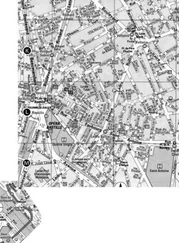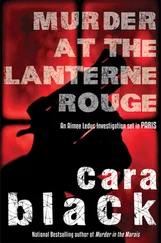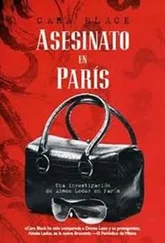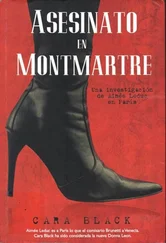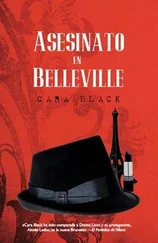She planted a kiss on his warm forehead, leaving a fuchsia imprint, then headed next door. Passing through a long parlor, she entered a small, darkened sitting room. 1950s Chinese movies flickered in scratchy black and white on a large screen. Grand-mère lay snoring, her thin jet-black hair combed into a bun. Her head rested on a stone pillow.
Nadège saw the Longchamp racing forms, the betting stubs under the chaise. Everything neat and arranged. Grand-mère played the horses, winning more often than not. And she liked modern gadgets like the newest cell phone.
For a moment, Nadège wanted to lie down next to grand-mère , to nestle in her arms like she had as a small child. But the craving wouldn’t go away. No good wishing it would.
Nadège rooted in her makeup bag. Found her small pipe, rolled the gummy black-brown pellet between her thumb and forefinger, lit the pipe and inhaled. The heavy, sickly sweet smoke hit her lungs. Took her away.
When she came to, she found herself sprawled on the wood floor, her nose running, her sweater ripped, its feathers and beads stuck in the parquetry crevices. The TV screen still flickered. Her grand-mère’s eyes were open, watching her.
“No good girl!”
Guilt flooded her. As it always had throughout her childhood.
Her grand-mère lapsed into a harsh mixture of Vietnamese interspersed with Chinese.
“I don’t understand when you talk like that,” Nadège said.
“Where is your hiêú ? Your greeting for your elders?”
Nadège knew she meant filial respect. “Tiens , grand-mère !”
“Little Michel doesn’t need you around. A bad example,” she said. “Don’t come back. Méchante . . . like your mère ! No good!”
But you raised us , Nadège wanted to answer. “I’m hungry,” she said, instead.
“Too much food downstairs. Too much drink. Fancy French like your papa. Gweilo,” she spat. “You like them.”
As if every person outside her grand-mère’s enclave was a white-faced devil.
“Papa won’t talk to me,” she said. “You know that. I need your help, grand-mère .”
She had no place to stay now. Nowhere safe.
“Thadée’s dead.”
Grand-mère shook her head. “Sad. Sorry. He your uncle by marriage but mix with bad people. Like you. You too lo fan , all foreigner,” she said. “Don’t listen nobody. Too much this,” she said, pulling Nadège’s sleeve up.
Only old bluish marks.
Nadège chased the dragon now, inhaling the wispy trail of smoke from a pellet burning on tin foil. Quitting, she was quitting.
“The horses running good, grand-mère ?”
“Don’t change subject. I try but no good breeding.” She sat up, readjusted the jade hairpiece in her bun. “But I take care, Michel. So smart, that boy.”
Just as she’d raised Nadège. After her mother’s death, Nadège’s papa had shunted her off to these rooms in the back wing. Grand-mère kept her own servant, her own entrance, even her own little kitchen filled with the special smells of Saigon. And every Friday night, under the watchful eyes of Victor Hugo and Buddha, both revered as saints by her grand-mère’s Cao Dai sect, her mah-jong pals could be found clicking the mah-jong tiles atop the black lacquer table.
“Thadée was killed,” Nadège said. “Shot.”
Grand-mère shook her head. Was there something else in those sharp eyes?
“Sad, like I say. But bad people, bad business. Bad aura, all gweilo, ” she said. “He no relation to me, no business of mine.”
Her grand-mère’s ringed hand put a fistful of francs in Nadège’s hand. “Go now.”
“Where’s papa?”
But her grand-mère had already turned up the volume on the TV set.
Nadège cleaned up her nose, applied more makeup, and found her way through the kitchen. The cooks, busy stuffing squabs, ignored her and the hired servers, with full trays, elbowed her out of the way.
She slipped into the main room and took a glass of kir royal from a waiter. Her former stepmother, a year older than Nadège, whose blonde hair hit her waist, was holding court by one of the Rodin statues.
Nadège made her way to the high-ceilinged glass solarium. Often her father hid in there; he hated this kind of party, just as she did. And there he stood, under the Belle Epoque iron-and-glass framed roof. Her father, black hair graying at the temples, glinting in the candlelight, tapped his cigar ash into the base of a palm tree.
As she moved closer, she saw he was speaking with two men. One wore a blue police uniform. And from the tense look on her father’s face she realized he now knew about Thadée. Nadège edged out of the solarium, through the kitchen, and into the night.
Wednesday Midnight
AIMÉE POUNDED ON HER godfather’s door. She saw Morbier’s sleepy-eyed surprise as she half-carried a stumbling Sophie across his doorway.
“ Tiens , Leduc,” he said, pulling his flannel shirt around him, consulting his worn watch, and sniffing. “It’s late. Don’t bring your drunken friends here, eh . . . especially one who looks like trouble.”
“She needs babysitting and she’s not drunk.”
“Nice of you to extend my hospitality, but I don’t have room for guests. Like I said—”
“Round the clock until I discover who has kidnapped René.”
Startled, Morbier pushed his socialist newspaper aside, kicked his wool charentaise slippers away, and spread a blanket on his couch. She laid Sophie down, pulled off the wet, brown boots, and covered her.
Sophie, who’d passed out again in the taxi, blinked, barely conscious. Aimée poured her a glass of water and helped her to sit up and, painfully, drink it.
“Sophie, did you see who attacked you?”
“Where am I?” She rubbed her eyes, sniffed. “Smells like the warehouse.”
Morbier’s housekeeping skills left a lot to be desired, but a warehouse? Then Sophie stiffened.
“I was tied up, hung from. . . .” She stiffened. “You’re kidnapping me!”
“I found you and helped free you,” Aimée said. “This man’s my godfather, he’s a Commissaire de Police. Show her your badge, Morbier.”
“ À vôtre service, mademoiselle, you’re safe here.” He winked, finding his wallet and opening it to show his ID.
“Poor Thadée.” Sophie burst into tears, her shoulders heaving.
“Listen to me, Sophie, someone on a motorcycle shot him, then came after me,” Aimée said, leaning closer. “I pulled him into the phone cabinet, where he died in my arms.”
“We were divorced,” Sophie said, wiping her blue eyes with her sleeve. “But we remained friends. I became his partner at the gallery. We were always better at that anyway.”
Sophie’s eyes were pools of hurt. Did she still love Thadée?
“Can you remember what happened?” Morbier asked.
Sophie blinked several times. “They took me to the morgue to see Thadée’s body this morning. It was horrible,” she said, her wide eyes filling with tears again. Her light brown hair was matted to her cheeks.
“Did you talk to him before he was shot, Sophie?”
“I only arrived from London this morning to prepare for the exhibition,” she said, rubbing her head.
“But you must have talked, non? ”
“He hadn’t even hung all the artwork for the show!”
“Sophie, did he speak about jade?”
She shook her head and winced. “The only time I saw him was in the morgue.” Tears rolled down her cheeks. “Tonight, after I checked the gallery for the shipment, I turned the light off in the bathroom. Someone grabbed me. Next thing I knew, I was hanging from the overhead water tank.”
Читать дальше


